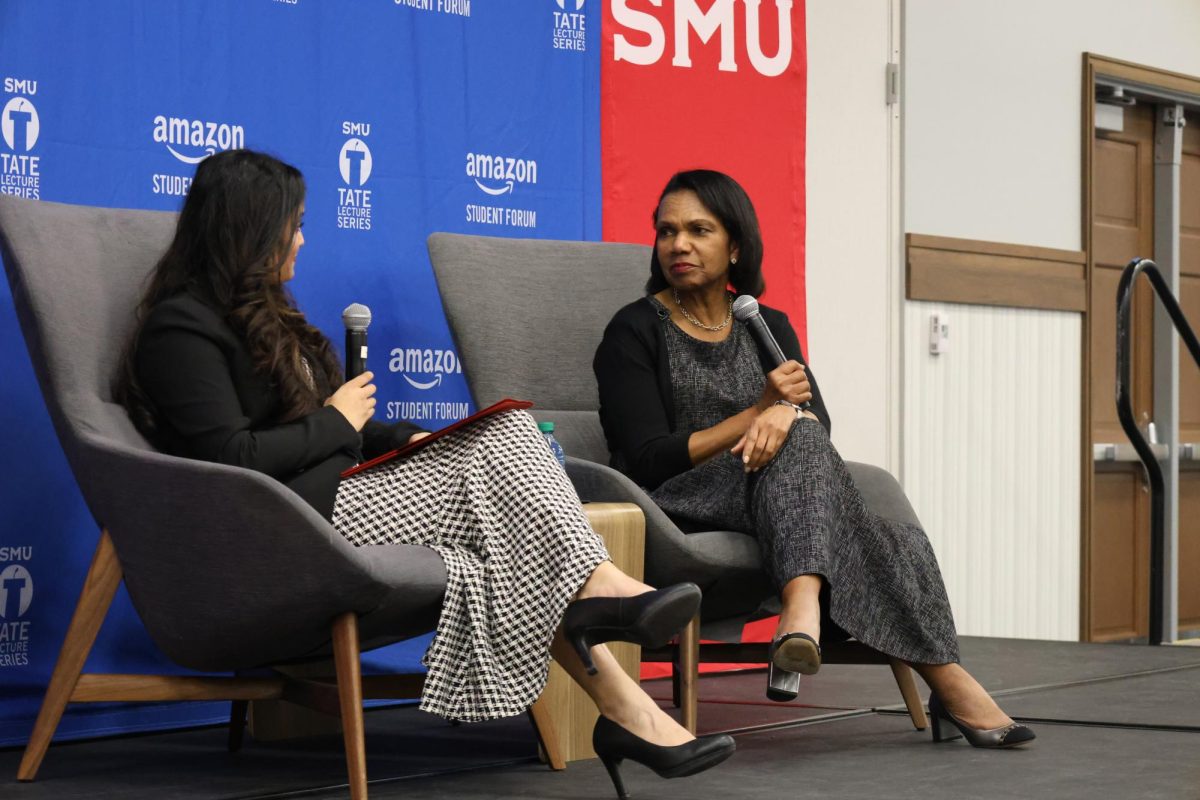The Dallas Chapter of the National Black United Front (NBUF) held a rally at the Pan-African Connection Bookstore near Fair Park on Saturday to both offer support for embattled Dallas politician John Wiley Price and to call attention to “the history of attacks by the FBI used to keep black people down.”
“This [rally] happened as a result of the COINTELPRO [Counter Intelligence Program] attacks on John Wiley Price,” Thomas Muhammad, organizer of the event and president of NBUF Dallas, said.
COINTELPRO was a series of covert and typically illegal operations used by the federal government between 1956 and 1971 to infiltrate political groups thought to be “subversive” — including groups associated with the black civil rights movement. Muhammad believes they are still operating today to remove “charismatic black leaders who are doing good things in the community.”
John Wiley Price, who was the first black official elected to the Commissioners Court in Dallas, has served as a commissioner since 1985. Price has come under media scrutiny several times during his career for perceived odd behavior and suspected wrongdoing.
Last month, the FBI raided the homes and offices of the commissioner and his long-time assistant. Price has denied any wrongdoing, and no charges have yet been filed.
Muhammad said the attacks on Prices come “from a long string of attacks on people like Dr. Martin Luther King Jr., Malcom X and Sojourner Truth. I mean you name it. People who have been very active come under attacks from the U.S. government.”
Southern Dallas, the area Price represents, has united behind him. Several locations, including St. Luke’s United Methodist Church downtown, are taking donations for his legal fund, and rallies have been held regularly since the FBI raids.
The rally did not draw a large crowd – which organizers attributed to the 107 degree heat– but New York City Councilman Charles Barron, a speaker at the event, was not disappointed.
“Jesus took 12 and changed the world. We can take this number and change Dallas,” Barron said, atop a stage decorated with pictures of Martin Luther King, Queen Nzinga of Angola and Marcus M. Garvey.
Barron introduced Carolyn Davis, a Dallas City Councilwoman representing part of Southern Dallas, who defended Price.
“I’m here to support Our Man Downtown,” Davis said. “John has been there for each and every one of us.”
Houston City Councilwoman Jolanda Jones, who has recently been accused of using city resources to fund her private law practice and not cooperating with investigators, also spoke in support of Price at the event.
“They are coming after all of us,” she said to the crowd. “When I heard about what’s going on with John Wiley Price…I said I wouldn’t miss it.”
She said Price’s investigation, like her own, was a “selected attack” on black officials.
“We get scrutinized,” she said. “I believe that justice should be fair. It’s 2011, you think we would be farther along.”
Akwete Tyehimba, who owns Pan-African Connection with her husband Bandele, said that while Price may have done things that were unethical, the community “does not like the idea of outside forces attacking.”
“We will hold [Price] accountable,” she said. “He knows that he owes this community, and he’ll have to come forward.”
Bandele Tyehimba said the political system was partially at fault for Price’s predicament.
“I will say this: The system is a corrupt system, and if you are going to be involved in it you are going to be corrupt,” he said.
Neither Akwete or Bandele Tyehimba would elaborate on any charges they thought Price might be legally guilty of.
Muhammed said Price had broken no laws, but had instead been using “loopholes.”
“All of it’s legal. I mean they’re loopholes, but hell, people in the U.S. government, particularly white people, have been using loopholes for decades and centuries to get resources,” he said. “When people of color start doing the same things, now there is a problem … As a result, Commissioner Price becomes a threat. So who comes after him? The political arm of the U.S. government: the FBI.”
Despite Price’s use of “loopholes,” Muhammad said he was one of the best politicians to represent the black community and Southern Dallas.
“He could just go home every day and do nothing,” he said. “Instead he chooses to work in the streets on the streets also representing his people.”














